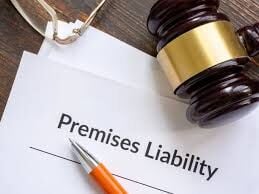
As a property owner or manager, understanding premises liability is crucial for protecting yourself and your assets. Whether you oversee a retail store, office building, or residential complex, you have a legal responsibility to maintain a safe environment for visitors. Failing to do so could leave you vulnerable to lawsuits if someone is injured on your property. In this article, the expert Dawn M. Pinnisi will provide an overview of premises liability fundamentals to help you navigate this complex area of personal injury law.
Understanding Premises Liability: The Basics
Premises liability is a legal concept that holds property owners responsible for accidents and injuries that occur on their property due to negligence. This area of law encompasses a wide range of scenarios, from slip-and-fall accidents to inadequate security incidents.
To establish a premises liability claim, three key elements must typically be proven: the property owner owed a duty of care, they breached that duty, and the breach directly caused the injury.
The duty of care owed can vary depending on the visitor's status (invitee, licensee, or trespasser) and the jurisdiction's laws. Understanding these foundational principles is crucial before consulting an attorney about a potential premises liability case.
Common Types of Premises Liability Cases
Premises liability cases encompass many incidents on someone else's property. Slip and fall accidents are among the most prevalent, often resulting from wet floors, icy sidewalks, or uneven surfaces. Another common type is inadequate security, where property owners fail to provide sufficient measures to protect visitors from criminal activity. Dog bites also fall under this category, with owners potentially liable for injuries caused by their pets.
Other cases include swimming pool accidents, falling objects, and injuries from defective property conditions such as faulty staircases or poor lighting. Understanding these common scenarios can help you recognize potential premises liability situations and take appropriate action if you're ever involved in such an incident.
Proving Negligence in a Premises Liability Claim
You must prove the property owner's negligence to establish a successful premises liability claim. This involves demonstrating four key elements:
- The property owner owed you a duty of care
- They breached that duty through action or inaction
- Their breach directly caused your injury
- You suffered actual damages as a result
Evidence is crucial in substantiating these elements. Document the hazardous condition with photos, gather witness statements, and keep records of medical treatments. An experienced premises liability attorney can help you build a strong case by collecting and presenting compelling evidence of the property owner's negligence.
Damages Available in a Premises Liability Lawsuit
In premises liability cases, you may be eligible for various types of compensation. Economic damages cover tangible losses like medical expenses, lost wages, and property damage. Non-economic damages address intangible harm such as pain and suffering, emotional distress, and loss of enjoyment of life. In cases of extreme negligence, punitive damages might be awarded to punish the property owner and deter similar behavior.
The specific damages available depend on the nature and severity of your injuries and the circumstances surrounding the incident. An experienced premises liability attorney can help you assess the full extent of your damages and pursue fair compensation for your losses.
When to Consult a Premises Liability Attorney
Serious Injuries or Damages
If you've suffered significant injuries or property damage due to hazardous conditions on someone else's property, it's crucial to consult a premises liability attorney. These professionals can help determine if you have a viable case and guide you through the complex legal process.
Unclear Liability or Multiple Parties Involved
When liability is not straightforward or multiple parties might be responsible, an attorney's expertise becomes invaluable. They can investigate the incident, identify all potentially liable parties, and build a strong case on your behalf.
Dealing with Insurance Companies
Insurance companies often try to minimize payouts. An experienced premises liability attorney can negotiate with insurers, ensuring you receive fair compensation for your injuries, medical expenses, lost wages, and pain and suffering.
Final Thoughts

Dawn M. Pinnisi considers that understanding the basics of premises liability is crucial before consulting an attorney. By familiarizing yourself with the key elements of duty of care, breach, causation, and damages, you'll be better prepared to discuss your case. Remember that property owners have varying levels of responsibility depending on your status as an invitee, licensee, or trespasser. Document all evidence thoroughly, including photos, witness statements, and medical records.
Here are some other articles related to your search:
Premise Liability: When Can You Sue For A Slip And Fall Accident
Your From-Home Bridal Dress Maker Business – How to Deal with Potential Problems



(0) comments
Welcome to the discussion.
Log In
Keep it Clean. Please avoid obscene, vulgar, lewd, racist or sexually-oriented language.
PLEASE TURN OFF YOUR CAPS LOCK.
Don't Threaten. Threats of harming another person will not be tolerated.
Be Truthful. Don't knowingly lie about anyone or anything.
Be Nice. No racism, sexism or any sort of -ism that is degrading to another person.
Be Proactive. Use the 'Report' link on each comment to let us know of abusive posts.
Share with Us. We'd love to hear eyewitness accounts, the history behind an article.